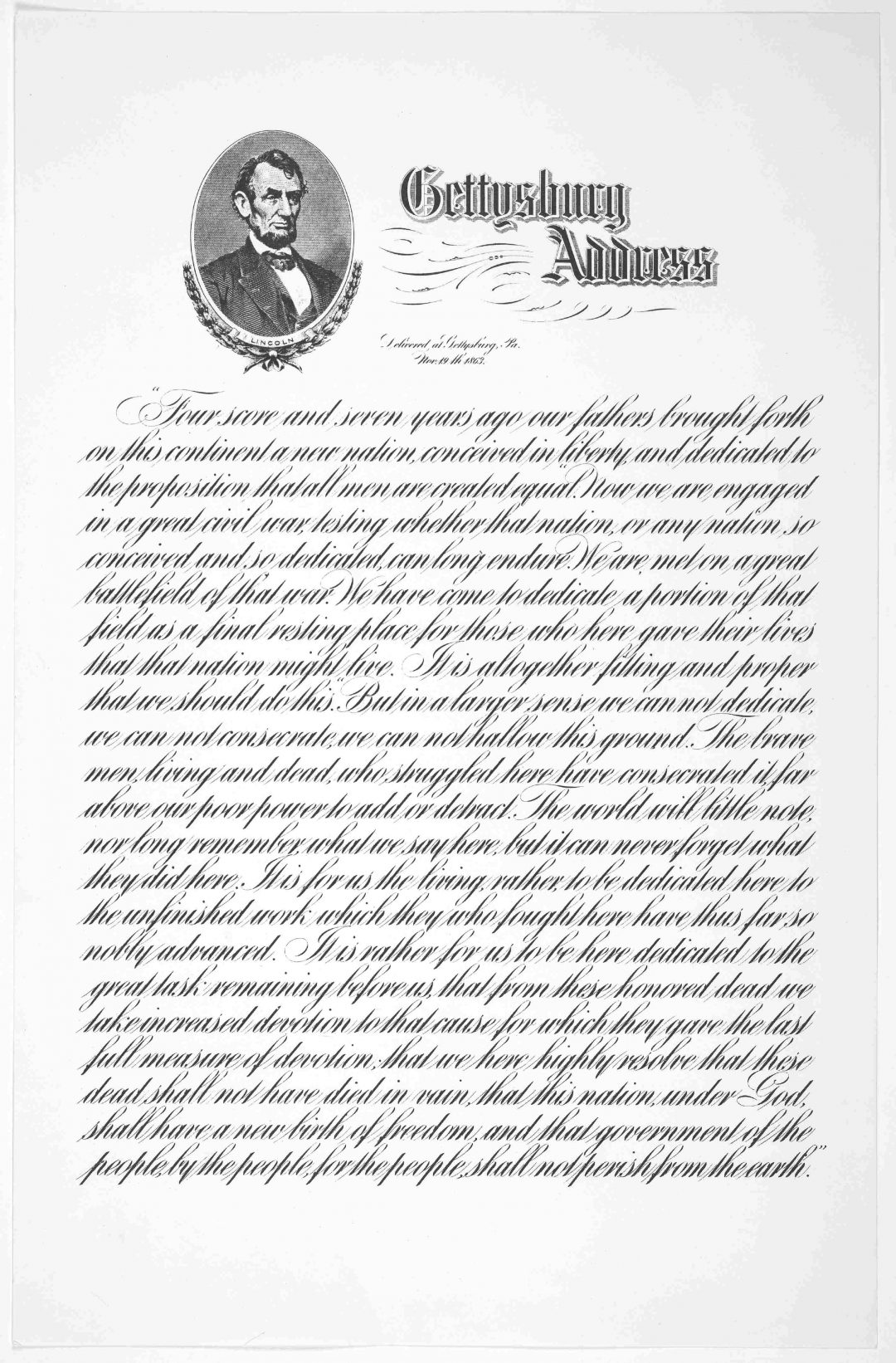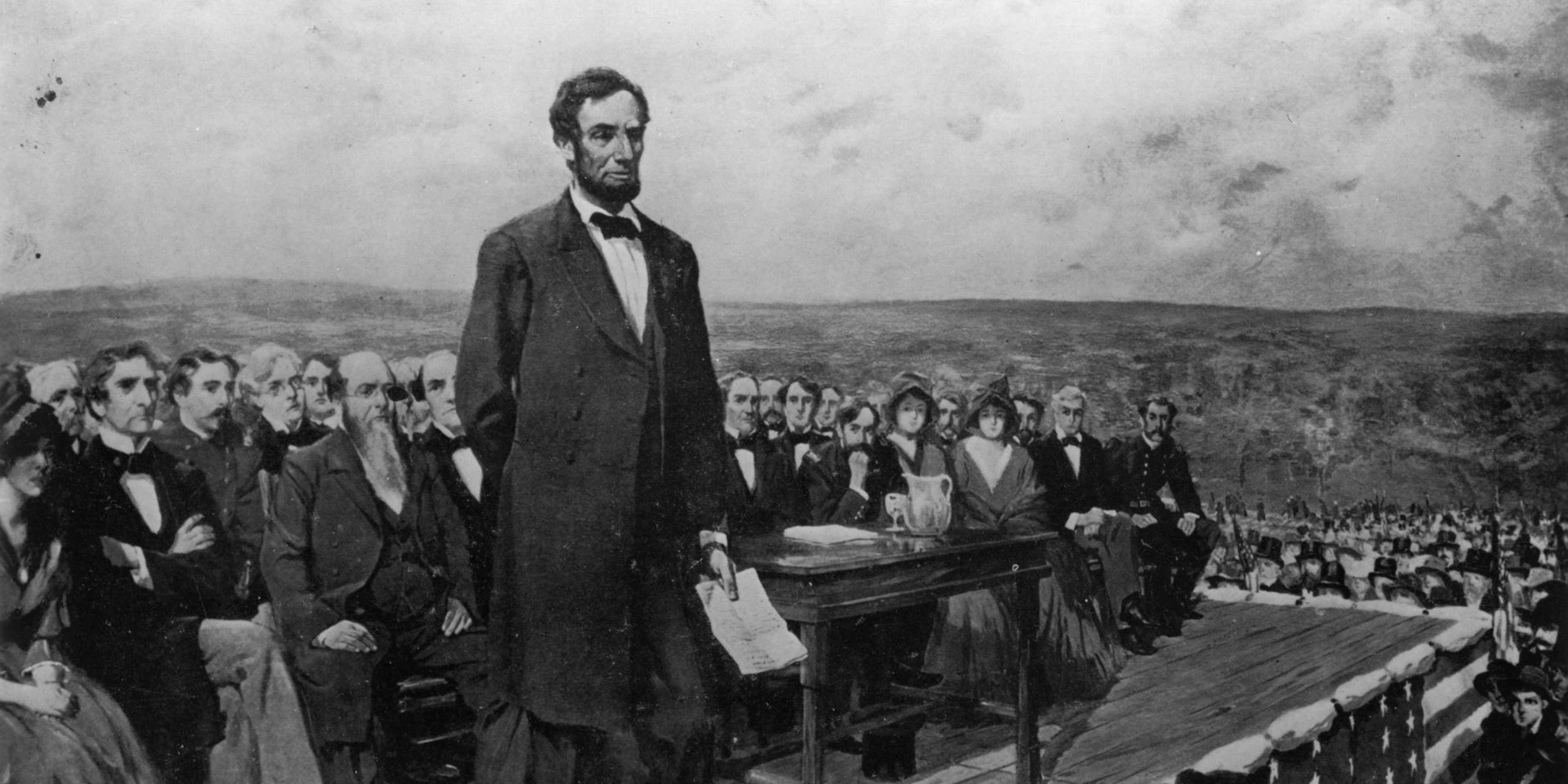On November 19, 1863, Abraham Lincoln delivered the Gettysburg Address at the dedication of a national cemetery after one of the most devastating battles of the Civil War. In 272 words, Lincoln transformed the sense of war, clarified the underlying ideals of America, and recast the purpose of the war itself. Instead of discussing the fallen or the immediate political conundrums of the war, Lincoln offered a presentation of the meaning of democracy, equality, and national unification as a political, ideological, and ethical signal of purpose. His short speech redirected the purpose of the war from persisting the Union to “a new birth of freedom.”¹
When Lincoln spoke, the United States was a nation deeply divided. The Civil War had begun taking thousands of lives, and it was uncertain whether the Union would survive. Lincoln did not, however, dwell on death or vengeance. Rather, he referenced the nation’s founding values – liberty and equality – articulated in the Declaration of Independence. According to historian Harold Zyskind, Lincoln’s rhetorical maneuver “was to connect the past with the future by repositioning the identity of the nation with its founding ideals.”² This connection made the sacrifice at Gettysburg matter not only for that moment, but for many generations.
Lincoln uses a tone that is solemn and universal. While not voicing the Confederacy or slavery directly, his words expressed the significance of the occasion. Richard Katula argues that the speech “heralded a radical transformation in American racial discourse,” framing the war as a question of whether this nation, one that is dedicated to equality, could survive.³ Katula also emphasizes that because Lincoln did not directly name the Confederacy, he was speaking to all Americans, advocating for re-unification rather than dis-unification.⁴ The phrase “a new birth of freedom” provided a link between the struggle against slavery and the Union’s broader mission, aiding in the conceptual transformation of the public understanding of the purpose of the Civil War.⁵
The enduring significance of the Gettysburg Address is not only in its style and elegance, but also in how it reframed the nature of American identity. It changed the Civil War from being just a sectional conflict into a reckoning with the promises of the nation’s founding. In the Junior of Blacks in Higher Education article on Lincoln’s later speeches, including the Second Inaugural, Lincoln’s moral voice became ever more popular among the population.⁶ Many Americans came to see Lincoln not just as a wartime president, but as a national conscience, preaching reconciliation, responsibility, and renewal.
The Gettysburg Address is still one of American history’s most analyzed and quoted speeches. Its short length and richness make it a model for political rhetoric; its principles continue to inspire conversations about democracy, equality, and national meaning. Lincoln’s words came at a moment of profound division, reminding Americans that there is always work to be done to further democracy, which includes sacrifice, reflection, and recommitment to the founding principles of the nation.
Footnotes
- Abraham Lincoln, Gettysburg Address, November 19, 1863.
- Harold Zyskind, “A Rhetorical Analysis of the Gettysburg Address.”
- Richard A. Katula, The Gettysburg Address as the Centerpiece of American Racial Discourse.
- Richard A. Katula, The Gettysburg Address as the Centerpiece of American Racial Discourse.
- Richard A. Katula, The Gettysburg Address as the Centerpiece of American Racial Discourse.
- “Lincoln’s Second Inaugural: Press Reactions,” The Journal of Blacks in Higher Education.
Works Cited
Katula, Richard A. “The Gettysburg Address as the Centerpiece of American Racial Discourse.” The Journal of Blacks in Higher Education, no. 28 (Summer 2000): 110–111. https://www.jstor.org/stable/2678723.
“Lincoln’s Second Inaugural: Press Reactions to the Most Eloquent Presidential Address in American History.” The Journal of Blacks in Higher Education, no. 43 (Spring 2004): 44–46. https://www.jstor.org/stable/4133544.
Zyskind, Harold. “A Rhetorical Analysis of the Gettysburg Address.” The Journal of General Education 4, no. 3 (April 1950): 202–212. https://www.jstor.org/stable/27795309.


Thank you.